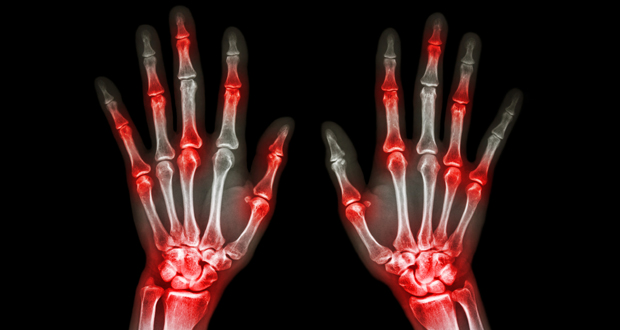Nursing and manufacturing linked to rheumatoid arthritis

To Sweden where researchers have been looking at occupations with a possible elevated risk of rheumatoid arthritis...
The findings published in Arthritis Care & Research show certain work-related factors, such as airborne agents may contribute to an increased risk of rheumatoid arthritis. Researchers, led by Anna Ilar of the Karolinska Institutet, analysed 3522 individuals with rheumatoid arthritis and 5580 controls from the Swedish population-based EIRA (Epidemiological Investigation of Rheumatoid Arthritis) study.
The study ran from 1996 to 2014 and drew its data from environmental, genetic and immunological factors. It is believed that the environmental factors play a role in the development of rheumatoid arthritis through the triggering of autoimmune reactions in susceptible individuals.
It was found that male workers in manufacturing were more at risk of developing rheumatoid arthritis than men working in professional, administrator or technical sectors. When workers within manufacturing fields were separated into sub-sectors bricklayers and concrete workers identified as having a threefold risk of developing the disease.
Within the female population, assistant nurses and attendants were identified as having a slightly increased risk of developing the disease.
Further research will be required to identify exposures that may cause the increased risk of the disease. Some potential suspects include silica, asbestos, organic solvents, and motor exhaust.
“Previous studies have not considered these lifestyle-related risk factors to the same extent. Our findings therefore indicate that work-related factors, such as airborne harmful exposures, may contribute to disease development,” said Ilar. “It is important that findings on preventable risk factors are spread to employees, employers, and decision-makers in order to prevent disease by reducing or eliminating known risk factors,” she added.
Email: [email protected]
